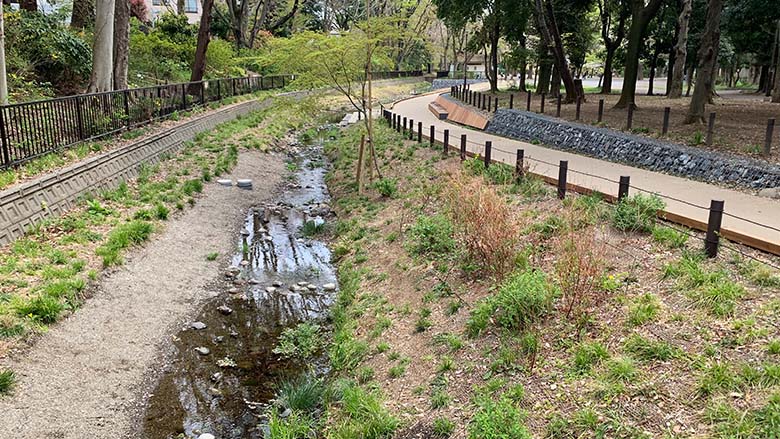Organized by the World Bank Tokyo Disaster Risk Management Hub
23rd Disaster Risk Management Seminar "Learning from Japan’s Experience in Integrated Urban Flood Risk Management: Launch of A Series of Knowledge Notes"
February 3, 2020
Tokyo, Japan

-
Globally, floods are the most frequent and damaging among natural hazards. Between 1998-2017, floods led to economic damages exceeding US$600 billion, affected more than 2 billion people, and resulted in around 142,000 fatalities. Compounded by rapid urbanization and climate change, these losses will likely increase, especially in developing countries where population numbers are rapidly growing in flood-prone areas. This poses a serious development challenge to many countries and their efforts to reduce poverty and increase shared prosperity. To help manage the impact of floods on people and economies, the World Bank provides technical assistance, advisory services, and financial support to a range of countries and cities around the world.
Facing different types and combinations of flood risk, Japan’s rich history, range of investments and approaches taken, offers a unique knowledge opportunity for other countries seeking to adopt and advance integrated urban flood risk management (IUFRM). A series of knowledge notes was developed to compile many of the key lessons learned from Japan’s IUFRM efforts. While any strategy to reduce disaster risk must be developed based on a close understanding of local contexts, the aim of this series is to help members of the international community improve their own approaches to managing urban floods. The four knowledge notes in this series cover urban floods, from assessment and planning through to implementation and maintenance. This public seminar will launch a publication “Learning from Japan’s Experience in IUFRM”, developed by the Urban Floods Community of Practice (UFCOP) and Tokyo Disaster Risk Management (DRM) Hub. The launch of the publication includes invited Japanese, international, and World Bank experts to discuss global and Japanese challenges and opportunities in IUFRM.
Program
Welcome Remarks
Masato Miyazaki
Special Representative, World Bank JapanTBC
Multilateral Development Banks, International Bureau, Ministry of FinanceKey Note Presentation 1: Urban Flood Risks and Resilience
Hiroaki Furumai
Professor, Research Center for Water Environment Technology, School of Engineering, The University of TokyoKey Note Presentation 2: Tackling Urban Flood Resilience in Japan from the National Level
Masahiko Murase
Director, International Affairs Office, Water and Disaster Management Bureau Ministry of Land, Infrastructure, Transport and Tourism (MLIT)Key Note Presentation 3: World Bank’s Efforts on Urban Flood Resilience and Importance of Japan’s Knowledge and Experience
Jolanta Kryspin-Watson
Lead Disaster Risk Management Specialist, World BankPanel Discussion
Integrated Urban Flood Risk Management - Connecting Japanese experience with global cities
Panelists
Jun Hayakawa
Senior Officer, Wide-Area Water management, River Division, Kanto Regional Development Bureau, Ministry of Land, Infrastructure, Transport and Tourism (MLIT)Mikio Ishiwatari
Visiting Professor, The University of TokyoTakashi Toyoda
Professional Engineer (Civil Engineering), Chief Engineer, Water Resources and Disaster Management Department, International Division, YACHIYO ENGINEERING CO., LTD.Panel Moderator
Jian Vun
Infrastructure Specialist, East Asia and the Pacific, World BankFacilitator
Shoko Takemoto
DRM Specialist, Global Facility for Disaster Reduction and Recovery (GFDRR), Tokyo DRM Hub, World Bank -
“Learning from Japan’ s Experience in Integrated Urban Flood Risk Management: A Series of Knowledge Notes” – at a glance
While any strategy to reduce disaster risk must be developed based on a close understanding of local contexts, the aim of this series is to help members of the international community improve their own approaches to managing urban floods. The four knowledge notes in this series cover urban floods from assessment and planning through to implementation and maintenance, in the following order:
- Urban Flood Risk Assessment and Risk Communication
- Urban Flood Risk Reduction Investment Planning and Prioritization
- Designing and Implementing Urban Flood Risk Management
- Ensuring Sustainability through Operations and Maintenance
The four knowledge notes draw on and are complimented by an appendix of over 20 detailed flood management case studies across Japan. They range from risk assessments used to create neighborhood-level evacuation plans in five adjoining wards in Tokyo (Knowledge Note 1, box 5) to Japan’s first housing development to apply an infiltration-based construction method (Akishima Tsutsujigaoka Collective Housing, appendix, case 17). Examples were selected by a committee comprised of Japanese technical experts from national and local governments, academia, the private sector, and civil society organizations. The committee ensured that evidence-based examples of IUFRM measures for various types of flood risk were highlighted, so as to draw out good practices and lessons useful to developing countries. Each case analyzes a specific IUFRM strategy and supports the discussion of various components of IUFRM in the knowledge notes.
The Knowledge Notes were prepared under the auspices of the Urban Floods Community of Practice (UFCOP). UFCOP is a global knowledge initiative led by the World Bank with support from the Global Facility for Disaster Reduction and Recovery (GFDRR) and others. The Knowledge Notes were developed with the financial support of the Japan–World Bank Program for Mainstreaming Disaster Risk Management in Developing Countries, which is financed by the Government of Japan and receives technical support from the World Bank Tokyo DRM Hub.
-
EVENT DETAILS
- DATE & TIME: Monday, February 3, 2020, 10:00am-11:45am
- VENUE: World Bank Tokyo Office, 14th Floor, Fukoku Seimei Building, 2-2-2 Uchisaiwaicho, Chiyoda-ku, Tokyo, Japan (Please refer "ACCESS" in RELATED below) * We have moved to the 14th floor.
- LANGUAGE: English and Japanese (with simultaneous interpretation)
- REGISTRATION: Registration is now closed as we have reached our full capacity for the event. Thank you for your interest.
- ADMISSION: free
- CONTACT: World Bank Tokyo Disaster Risk Management (DRM) Hub TEL: 03-3597-1320
- drmhubtokyo@worldbank.org